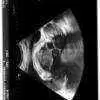-
Welcome to Celiac.com!
You have found your celiac tribe! Join us and ask questions in our forum, share your story, and connect with others.
-
Celiac.com Sponsor (A1):
Celiac.com Sponsor (A1-M):
-
Get Celiac.com Updates:Support Our Content
Could This Be Hypoglycemia?
-
Get Celiac.com Updates:Support Celiac.com:
-
Celiac.com Sponsor (A17):
Celiac.com Sponsor (A17):
Celiac.com Sponsors (A17-M):
-
Recent Activity
-
- Jane02 replied to Jane02's topic in Gluten-Free Foods, Products, Shopping & Medications8
Desperately need a vitamin D supplement. I've reacted to most brands I've tried.
Thank you so much @knitty kitty for this insightful information! I would have never considered fractionated coconut oil to be a potential source of GI upset. I will consider all the info you shared. Very interesting about the Thiamine deficiency. I've tracked daily averages of my intake in a nutrition software. The only nutrient I can't consistently... -
- MichaelDG posted a topic in Board/Forum Technical Help0
celiac.com support
How do I contact someone at celiac.com concerning the cessation of my weekly e-newsletter? I had been receiving it regularly for years. When I tried to sign-up on the website, my email was not accepted. I tried again with a new email address and that was rejected as well. Thank you in advance! -
- knitty kitty replied to Jane02's topic in Gluten-Free Foods, Products, Shopping & Medications8
Desperately need a vitamin D supplement. I've reacted to most brands I've tried.
Hello, @Jane02, I take Naturewise D 3. It contains olive oil. Some Vitamin D supplements, like D Drops, are made with fractionated coconut oil which can cause digestive upsets. Fractionated coconut oil is not the same as coconut oil used for cooking. Fractionated coconut oil has been treated for longer shelf life, so it won't go bad in the... -
0
Penobscot Bay, Maine: Nurturing Gluten-Free Wellness Retreat with expert celiac dietitian, Melinda Dennis
untilHello! Join me and treat yourself to a four-day, three-night restorative gluten-free retreat in a peaceful, private coastal retreat setting near Penobscot Bay in Maine. Dates: April 10-13, 2026 Enjoy engaging classes... -
- Scott Adams replied to Jane02's topic in Gluten-Free Foods, Products, Shopping & Medications8
Desperately need a vitamin D supplement. I've reacted to most brands I've tried.
I do not know this, but since they are labelled gluten-free, and are not really a product that could easily be contaminated when making them (there would be not flour in the air of such a facility, for example), I don't really see contamination as something to be concerned about for this type of product.
-





Recommended Posts
Archived
This topic is now archived and is closed to further replies.